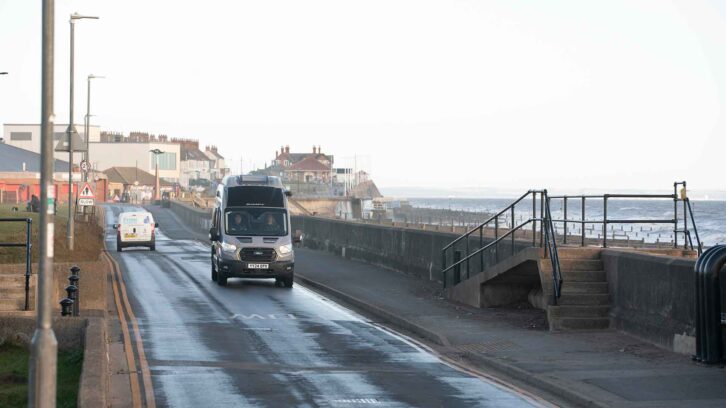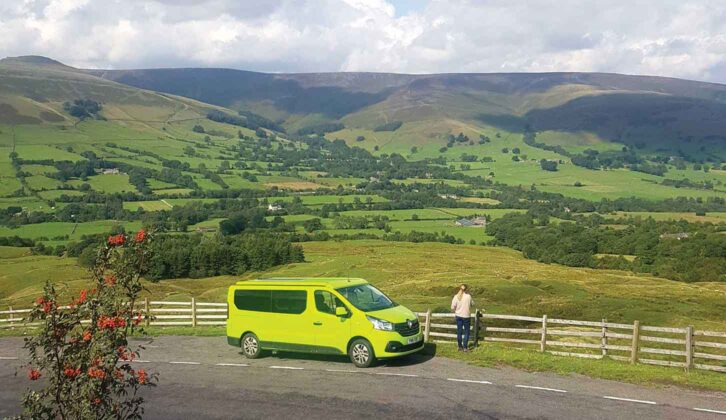One of the main perks of owning a campervan is the freedom to hit the road and explore. However, one thing that is likely to be on your mind when you’re planning your route is “where can I park my campervan?”, especially if you’re in a part of the UK you’re not familiar with.
Yes, having one of the best camper vans is all about the get up and go. But, sadly (or not so sadly, perhaps, depending on your point of view), that does not mean you can park it anywhere you choose. And you certainly cannot sleep in it anywhere you choose either (if you’re also wondering “can you sleep in a campervan while it’s being driven“?, you cannot either, unless of course you are strapped up).
So where can you park a campervan, and where can you stay overnight, if you don’t want to end up in a possibly institutional-looking caravan park?
Unfortunately answering that question is not a simple task, for the simple reason that all laws regarding parking and where you can stay overnight in this country are delegated down to individual local authorities to decide – at least for public roads. And as there are close to 400 different councils in the UK (once you include district councils, county councils, unitary authorities, national parks, and more), it is very hard to generalise about what the law is.
You may find different laws applying in councils that are next door to one another. Over time, you may find the laws you may have become used to in one district change. In recent years, this has become a particular issue in many British seaside resorts, where local councils have sought to tighten up parking rules to prevent campervans dominating the seafront.

For private or unadopted roads, it is a different matter – although you would still be wise to check with the local landowner or nearby residents to check that is is OK to park there. You would not want to be done for obstruction or trespassing.
Campervans face further hurdles when it comes to official car parks. First of all because the spaces they provide are almost always not big enough to contain your vehicle. If you find yourself overlapping two spaces, you should study the parking bye-laws that should be on display nearby to make sure that you aren’t required to buy two tickets – you often are.
Then there is the question of car park barriers. Again, in recent years, more and more councils have installed these. The barriers are usually 2m high.
The ease of driving will almost certainly be a consideration when choosing the best van for a camper conversion. Some VW Transporter fans claim this is one of the many things that makes their beloved vehicle superior to the Ford Transit Custom – it can slip under such a barrier. Speaking from experience, given how often these barriers can be affected over time by the weather or even by various unsavoury humans, I wouldn’t want to risk driving my van under such a barrier to find out.
On the plus side, if you do happen to come across a space you think is perfect for your campervan, I wouldn’t necessarily just accept that any irate local coming up to you and saying “Oi, you can’t park that thing here!” is necessarily well informed. Twice while I have been travelling around the country doing work for Practical Motorhome, I have had just such an experience, only to discover on further investigation that there was no truth in what I was being told at all.
Still, if you think you are going to be in one area for a particular length of time, it might be worth looking on the relevant council’s website before you go there to check on what the parking rules are. Some of them do genuinely want to help campervan owners. Of course, ideally such laws should be on display on nearby signposts. But they aren’t always, and even when they are, they can sometimes be confusing.

As for parking your vehicle for a long time, you might think you can just park the thing on the street outside your home. But again this might not always be the case. Check with your council that you are allowed to do so. In any case, and especially if you have a larger vehicle, you might find your neighbours getting angry if you do – I had two rude messages left under the windscreen wiper after just a week of leaving my last motorhome on the street. So it is always wise to consider leaving your van in a local storage site instead. Although these are not impervious to thieves, they are a lot safer than on-street parking as well.
Much of the same rules apply when it comes to staying overnight in your van. Generally speaking, there will be local bye-laws against doing this. It used to be claimed that wild camping, as such a situation is known, is much more acceptable in Scotland than it is south of the border. But I don’t think it is possible to be so clear cut any more. If you’ve been considering a tour to Germany or France via the Eurotunnel or ferry, you will possibly have heard of small campsites called an aire de camping car or a stellplatz. The UK is still a long way from these countries, where they can be found in just about every village.
For the moment, as with all of this, it helps to study the local bye-laws and abide by them.
Something else which can help you enjoy a stress-free experience on the road is one of the best sat navs for a motorhome – you can input your vehicle’s dimensions and receive custom routing to ensure you don’t find yourself driving down a road which gets too narrow or confronted by a low bridge.
Future Publishing Limited, the publisher of Practical Motorhome, provides the information in this article in good faith and makes no representation as to its completeness or accuracy. Individuals carrying out the instructions do so at their own risk and must exercise their independent judgement in determining the appropriateness of the advice to their circumstances. Individuals should take appropriate safety precautions and be aware of the risk of electrocution when dealing with electrical products. To the fullest extent permitted by law, neither Future nor its employees or agents shall have any liability in connection with the use of this information. Double check any warranty is not affected before proceeding.
If you’ve enjoyed reading this article, why not get the latest news, reviews and features delivered direct to your door or inbox every month. Take advantage of our brilliant Practical Motorhome magazine SUBSCRIBERS’ OFFER and SIGN UP TO OUR NEWSLETTER for regular weekly updates on all things motorhome related.
Leave a Reply